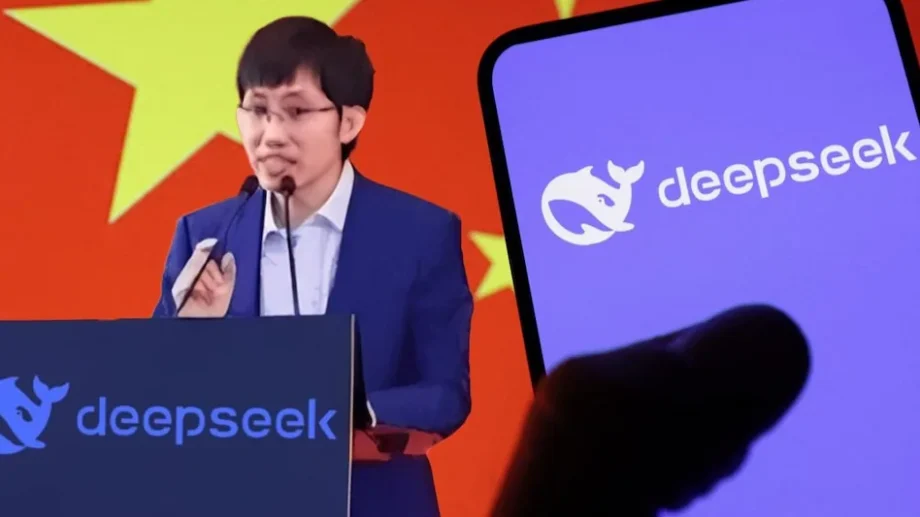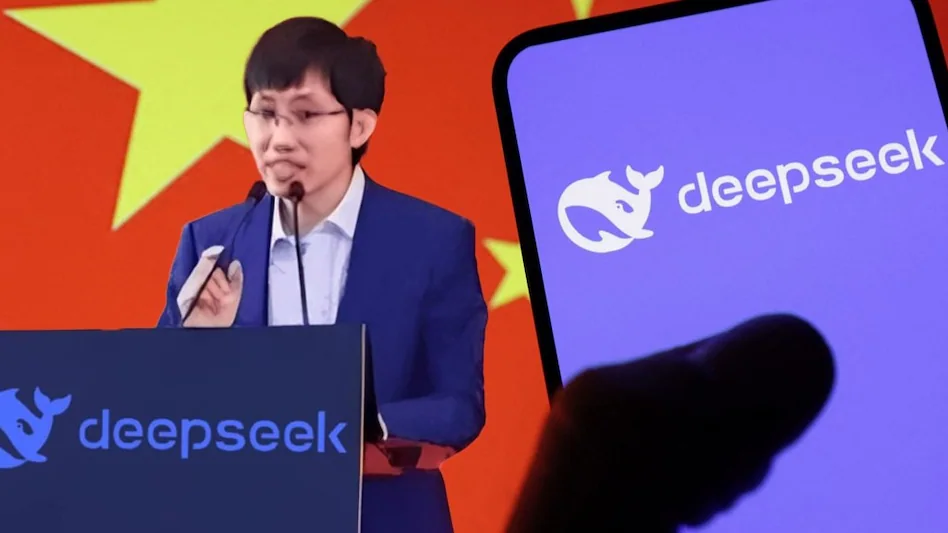What happens when a low-profile Chinese firm rewrites the rules and forces the Valley to confront its own complacency?
It’s hard to believe that just a few months ago, DeepSeek was barely on anyone’s radar. Today, the Chinese AI startup has become a focal point of both tech innovation and geopolitical tension—so much so that lawmakers in Washington are now moving to ban DeepSeek’s app from all U.S. government devices. In many ways, this mirrors the trajectory of other disruptive apps that found themselves at the intersection of privacy, national security, and global competition—only this time, the stakes seem even higher.
A Rapid Ascent and Global Scrutiny
DeepSeek’s swift rise has been nothing short of meteoric. After launching a free, open-source chatbot, the company quickly amassed millions of U.S. downloads, outpacing even longtime industry leaders in the AI space. This explosion in popularity has been linked to the startup’s unique approach to AI architecture—specifically, its decision to rebuild machine-learning models from the ground up. Instead of layering incremental improvements on top of existing open-source frameworks, DeepSeek is rethinking core principles like efficiency, scalability, and data sovereignty.
“DeepSeek, a disruptive new Chinese AI company, emerged seemingly out of nowhere last month,” writes The Wall Street Journal in a front-page story dated February 6, 2025. “The chatbot for the Chinese startup is now the most downloaded app in the U.S.”
But the very features that have made DeepSeek so appealing to everyday users—and so fascinating to AI researchers—have also invited skepticism from national-security experts and lawmakers. According to an analysis by Ivan Tsarynny, CEO of Feroot Security, the app contains “intentionally hidden code” that may send user login data to China Mobile, a state-owned telecommunications company already barred from U.S. operations. The discovery, first reported by the Associated Press and cited in the WSJ article, ignited a firestorm of criticism and led multiple U.S. agencies, including the Navy and NASA, to block the app on government devices.
Echoes of the TikTok Saga—or Something Bigger?
For many on Capitol Hill, the DeepSeek situation feels like déjà vu. The potential ban is reminiscent of the 2022 battle over TikTok, in which Congress first outlawed the Chinese-owned social-media platform on federal devices and later explored an outright national ban. This time, the proposed legislation—spearheaded by Reps. Darin LaHood (R., Ill.) and Josh Gottheimer (D., N.J.)—takes aim at an emerging technology that some argue could be far more influential than short-form videos.
“This should be a no-brainer in terms of actions we should take immediately to prevent our enemy from getting information from our government,” Representative Gottheimer told the WSJ, underscoring bipartisan support for the ban.
What stands out, however, is the depth of DeepSeek’s potential data collection. TikTok was mainly scrutinized for user location and browsing behavior. DeepSeek’s AI chatbot can integrate with countless business and personal applications—email, data analytics, remote servers—giving it a broader scope to harvest sensitive information. That makes the risk of “digital espionage” and “intellectual property theft” more alarming, according to cybersecurity experts.
All Roads Lead Back to Innovation (and Competition)
Despite—or perhaps because of—these controversies, DeepSeek’s technology is being hailed by some AI researchers as a paradigm shift. As reported by Rest of World, the startup has successfully recruited top AI talent from both China and the U.S., offering them a chance to work on groundbreaking innovations with minimal bureaucratic overhead. This influx of talent is reminiscent of Silicon Valley’s earliest days, when the promise of solving the world’s biggest challenges drew the brightest minds to a handful of garages and dorm rooms.
What truly unnerves many in the Valley is not just the possibility of losing America’s AI edge to a foreign competitor. It’s the fact that DeepSeek’s approach to machine-learning fundamentals—rather than quick, incremental updates—evokes an almost forgotten playbook of true innovation. In the 1990s and early 2000s, companies like Apple and Google became global titans by building from scratch, ignoring conventional wisdom and creating entire new markets in the process.
A Shifting Power Dynamic in Tech
Meanwhile, a report from Local News Matters highlights how DeepSeek’s meteoric rise has come at a time when Silicon Valley stalwarts appear more preoccupied with acquisitions and investor relations than with genuine breakthroughs. According to the piece, companies like Google and Facebook (now Meta) have been caught off-guard by DeepSeek’s “scale-first” strategy—giving away its models as open-source code, yet operating with enough secrecy to protect its proprietary data pipeline.
That duality—offering developers a free tool while retaining key intellectual property—has made DeepSeek simultaneously popular (it’s the top downloaded app in the U.S.) and polarizing (it faces mounting bans across government sectors in the U.S., Australia, and Italy). For many U.S. policymakers, the concern goes beyond personal data. DeepSeek’s infiltration of the enterprise and research spaces may provide the Chinese government with unprecedented insight into America’s digital infrastructure.
The Big Question: Where Does Silicon Valley Go From Here?
To some insiders, the DeepSeek controversy signals a wake-up call. The Valley’s decades-long assumption—that all major technological breakthroughs either start in or eventually migrate to the West—may no longer hold. DeepSeek is the first AI startup in a long time to remind everyone that real innovation doesn’t always come from the usual suspects.
Yet the path forward is unclear. Legislative efforts to ban DeepSeek could mirror the earlier TikTok saga or go further, potentially sparking a tech cold war between the U.S. and China. On the other hand, some argue that the best defense is not a ban but healthy competition—spurring American companies to refocus on foundational R&D rather than chasing incremental user growth.
“Under no circumstances can we allow a CCP company to obtain sensitive government or personal data,” said Rep. LaHood in the WSJ article, highlighting the friction between national security imperatives and the open, collaborative ethos that once fueled Silicon Valley’s rise.
A Reckoning—and an Opportunity
Whether DeepSeek becomes the next major casualty of U.S. policy or successfully weathers the storm, one thing is certain: its rapid ascent and fearless approach to AI have forced Silicon Valley to reflect on what it means to be innovative in 2025. Are American tech giants willing to double down on true innovation—pushing boundaries in AI architecture the way DeepSeek has—or will they rely on acquisitions and policy interventions to secure their dominance?
In a way, DeepSeek’s story mirrors the Valley’s own creation myth: a group of driven outsiders determined to overturn existing paradigms. The difference is, this time, the outsiders aren’t in a California garage; they’re halfway around the world—and they’ve caught the attention of both Wall Street and Washington.
Key 2025 Sources Referenced
1. The Wall Street Journal
“Lawmakers Push to Ban DeepSeek App From U.S. Government Devices”
By Natalie Andrews | Updated Feb. 6, 2025
2. Rest of World
“China’s AI Talent Pipeline: The Rise of DeepSeek and the Waning of U.S. Dominance”
Published 2025
3. Local News Matters
“Taking a Deeper Look at DeepSeek: The Small Chinese AI Startup Shaking Up Silicon Valley”
Published Feb. 1, 2025





